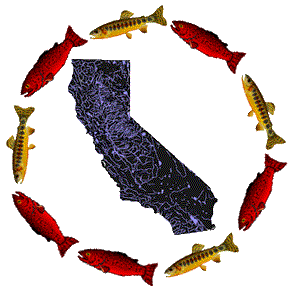CSPA |
| Your 501(c)(3) tax deductible cash donations are desperately needed if the fight for our fisheries is to continue. Read how you can donate! |

 More News
More News
![]()
U. C. Davis Scientists discover maternal transfer of toxic chemicals and pesticides from adult to larval striped bass in the San Francisco Estuary
December 8, 2008 - In a study to be released today, U.C. Davis scientists David J. Ostrach, Janine M. Low-Marchellic, Kai J. Edera, Shaleah J. Whitemanb, and Joe G. Zinklb of the John Muir Institute of the Environment, Center for Watershed Sciences, and Department of Pathology, Microbiology, and Immunology, School of Veterinary Medicine, University of California, have discovered that in addition to the, "multiple stressors... affecting the aquatic fauna in this dynamic and complex ecosystem: entrainment and death of fish due to water diversions for agriculture and human usage, food limitation and larval starvation, introduced species, climate change, and contaminants'" that yet another factor is affecting the decline of the striped bass and other pelagic bay species.
After extended research, these scientists have concluded that toxic chemicals and pesticides are transferred from female striped bass to their eggs causing increased mortality and other problems. In doing the research scientists worked with both controlled hatchery larvae and larvae collected from wild fish.
Investigation revealed that, "Results from the developmental studies showed that control larvae exhibited normal morphology, growth, and development, whereas larvae from field-collected striped bass (subsequently referred to as river larvae) developed abnormally, grew more slowly, and were significantly smaller."
The report concludes, "that complex mixtures of contaminants are being maternally transferred to developing progeny," More funding is being sought to continue and expand the studies.
An abstract of the report can be found at the Proceedings of the National Academy of Sciences website. A full copy of the report in PDF format can be purchased at the site for $10.00